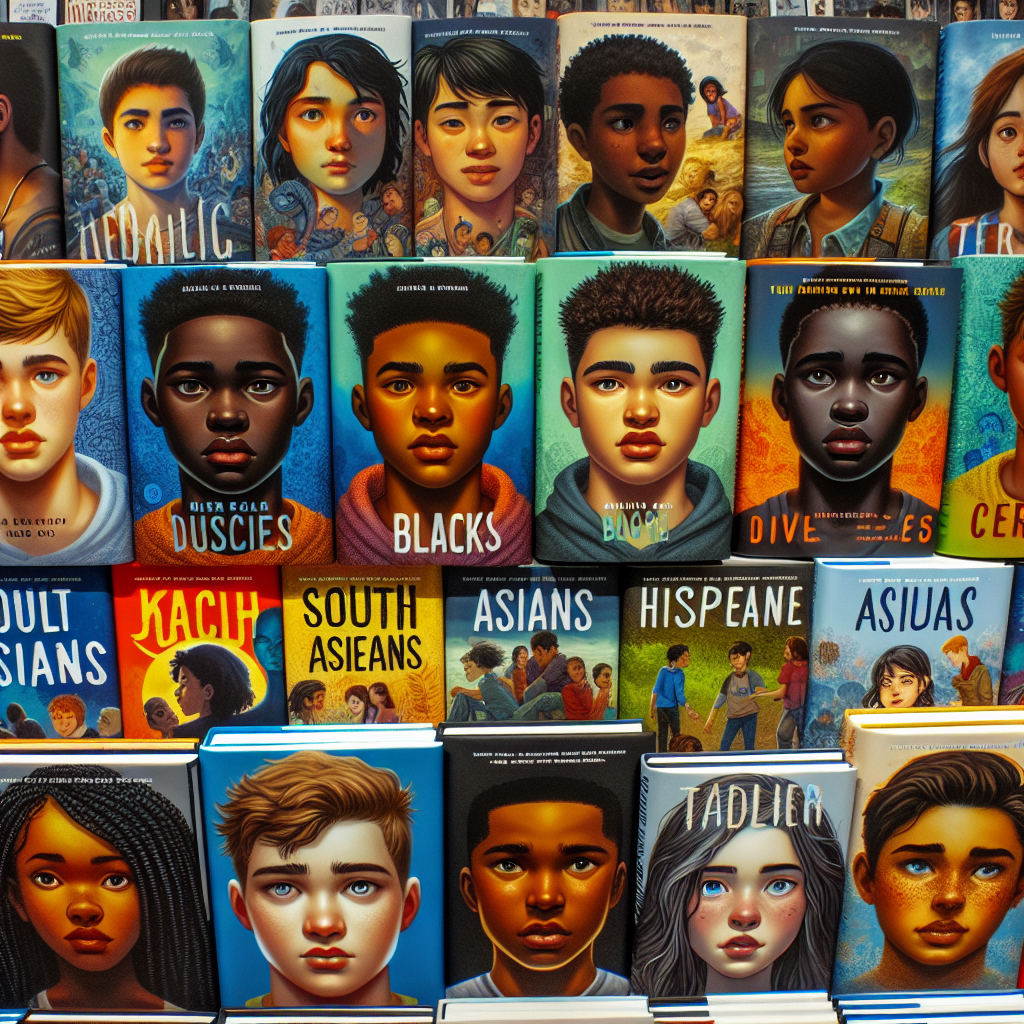As an Amazon Associate I earn from qualifying purchases.
Diverse YA Books with Relatable Characters: A Window and a Mirror

The landscape of Young Adult (YA) literature has evolved significantly over the years, moving towards a more inclusive and diverse representation of characters and stories. This shift not only reflects the changing demographics of readers but also underscores the importance of providing a mirror for young readers to see themselves and a window through which they can understand others. Diverse YA books with relatable characters play a crucial role in fostering empathy, understanding, and a sense of belonging among readers. This article delves into the significance of these books, highlights exemplary titles, and explores the impact they have on both individuals and society.
The Importance of Diversity in YA Literature
Diversity in YA literature is about more than just adding characters of different backgrounds, cultures, and experiences into stories. It's about creating narratives that reflect the real world, providing young readers with the opportunity to see themselves represented in the stories they read and to learn about lives and experiences different from their own. The benefits of including diverse characters in YA books are manifold:
- Representation Matters: When young readers see characters like themselves in books, it validates their experiences and helps build self-esteem.
- Building Empathy: Reading about characters from diverse backgrounds can foster empathy and understanding, breaking down barriers and stereotypes.
- Expanding Worldviews: Diverse YA books introduce readers to different cultures, beliefs, and ways of life, broadening their perspectives.
Spotlight on Relatable Characters
Relatability is a key factor that draws readers into a story, making the characters' journeys more impactful. Characters that face real-life challenges, experience growth, and show resilience resonate with readers, providing both a source of inspiration and a feeling of connection. This section highlights a few YA books that have successfully created relatable characters within diverse narratives.
- “The Hate U Give” by Angie Thomas: This powerful novel follows Starr Carter, a Black teenager who navigates the complexities of living in two worlds: the poor neighborhood where she lives and the affluent prep school she attends. The story becomes even more compelling after Starr witnesses the police shooting of her unarmed friend.
- “Aristotle and Dante Discover the Secrets of the Universe” by Benjamin Alire Sáenz: Set in the 1980s, this novel explores the friendship and eventual romance between two Mexican-American boys, Aristotle “Ari” Mendoza and Dante Quintana. Their journey of self-discovery and acceptance is both heartwarming and relatable.
- “Simon vs. the Homo Sapiens Agenda” by Becky Albertalli: Simon Spier is a not-so-openly gay high school junior who prefers to save his drama for the school musical. However, when an email falls into the wrong hands, his secret is at risk of being exposed. This story is a touching exploration of identity, friendship, and love.
Case Studies: Impact on Readers
The impact of diverse YA books with relatable characters extends beyond the pages. Through interviews, surveys, and academic studies, the positive effects of these stories on young readers have been documented. Here are a few case studies that highlight the transformative power of representation and relatability in literature:
- A study conducted by the Cooperative Children's Book Center (CCBC) found that students who read books with diverse characters showed increased empathy and a greater willingness to engage with people different from themselves.
- In a survey by the advocacy group We Need Diverse Books, 62% of respondents said that reading diverse books had made them feel more confident and accepting of themselves.
- Personal testimonies from young readers, such as those collected by the American Library Association (ALA), reveal how books like “The Hate U Give” and “Aristotle and Dante Discover the Secrets of the Universe” have helped them navigate their own identities and understand the world around them.
Challenges and Opportunities
Despite the progress made in diversifying YA literature, challenges remain. The publishing industry still faces issues related to representation, both in the stories that are told and the authors who tell them. However, these challenges also present opportunities for growth and change:
- Increasing Author Diversity: Supporting authors from underrepresented backgrounds is crucial for expanding the range of voices and stories in YA literature.
- Community Engagement: Libraries, schools, and bookstores play a key role in promoting diverse books and facilitating discussions around them.
- Reader Advocacy: Readers can influence the market by supporting diverse books and authors, and by requesting more representation in the books they want to read.
Conclusion: The Way Forward
The journey towards a more inclusive and representative YA literature landscape is ongoing. Diverse YA books with relatable characters not only enrich the reading experience but also play a vital role in shaping young readers' understanding of themselves and the world. By highlighting the importance of diversity and relatability in literature, supporting authors from diverse backgrounds, and advocating for more inclusive stories, we can continue to build a more empathetic and understanding society. The stories we champion today will inspire the generations of tomorrow, making the world of YA literature a powerful force for positive change.
Amazon and the Amazon logo are trademarks of Amazon.com, Inc, or its affiliates.






















































